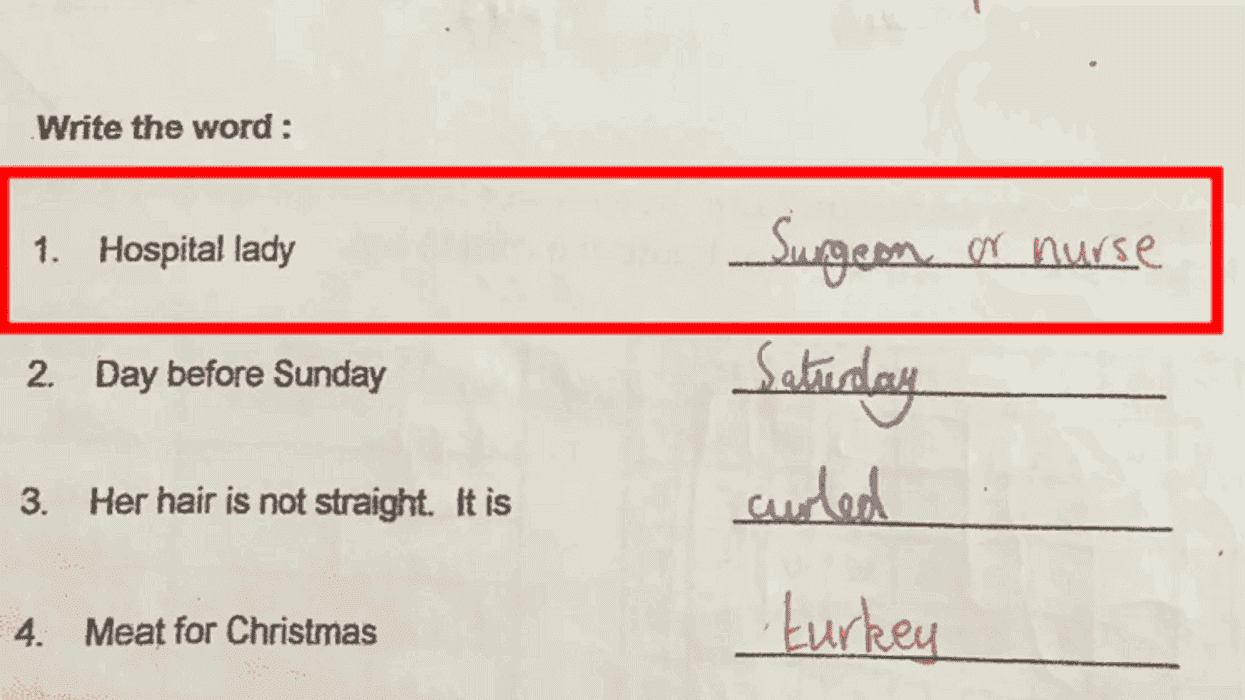Battling cancer takes an immense physical and emotional toll on the human body. When beloved Latin and Bible teacher Ben Ellis faced a difficult cancer battle, his devoted students rallied to support him. In a heartwarming gesture, they gathered outside his house and sang hymns for him. The entire high school student body at Nashville's Christ Presbyterian Academy turned up in massive numbers at the teacher's house - 400 students, to be precise, as reported by The Sun.

The Bible teacher was diagnosed with esophageal cancer, for which he was undergoing chemotherapy and radiation treatments. Unfortunately, the cancer had rapidly spread to his lungs, so the family stopped any further treatment on September 7. His wards attended Christ Presbyterian Academy, the school where he taught students ranging from pre-kindergarten to 12th grade. After learning about Ellis' condition, the students were determined to join him in his battle against cancer and decided to surprise him at his home.

A close family member captured the touching moment as the students poured their hearts into singing for their ailing teacher. It was later passed on to country singer Tim McGraw, who shared the clip on his Facebook page with a beautiful caption. It read, "A friend sent this to me today. Ben Ellis is a Nashville area high school teacher battling cancer. The entire student body (400+ students plus HS faculty) drove to his house to worship with him. Our thoughts and prayers are with him and his family..... So precious and kind."
In the video, we see 400 pupils lined up outside Ellis' house, singing hymns for him. On the other side of the frame, we see the teacher leaning forward into view, singing along and embracing this special moment, with his wife standing beside him. As Headmaster Nate described, the heartwarming scene was a “place where the veil between heaven and Earth felt very thin," per TODAY. The headmaster even commented on the interaction between the students and the teacher, "Ben said back to the students that he loved them and that they need to continue to love each other as well."
The video went viral within a few days on the internet. When Ellis learnt of the video’s reach, he described the experience in his blog on his CaringBridge page, "Last Wednesday, the entire CPA high school came and sang songs of praise and worship under my bedroom window. It was beautiful and unforgettable."
The Facebook clip shared by McGraw has managed to gather over 35 million views. One user, @johannah.gaines, commented, "Thank you so much for sharing this!! So kind! What a gift they have to him and his family. Very moving. God's presence was felt through the video!" As reported by TODAY, Ellis unfortunately passed away a few days after his students honored him with their performance.





















 Oral Wegovy pills were approved by the Food and Drug Administration in December 2025 and became available for purchase in the U.S. in January 2026.
Oral Wegovy pills were approved by the Food and Drug Administration in December 2025 and became available for purchase in the U.S. in January 2026. Despite the effectiveness of GLP-1 drugs for weight loss, there is still no replacement for healthy lifestyle patterns, including regular exercise.
Despite the effectiveness of GLP-1 drugs for weight loss, there is still no replacement for healthy lifestyle patterns, including regular exercise.


 What foods would you pick without diet culture telling you what to do?
What foods would you pick without diet culture telling you what to do?  Flexibility can help you adapt to – and enjoy – different food situations.
Flexibility can help you adapt to – and enjoy – different food situations.
 Anxious young woman in the rain.Photo credit
Anxious young woman in the rain.Photo credit  Woman takes notes.Photo credit
Woman takes notes.Photo credit 
 Revenge can feel easier than forgiveness, which often brings sadness or anxiety.
Revenge can feel easier than forgiveness, which often brings sadness or anxiety. 
 In the past two years, two malaria vaccines have become available for babies starting at 5 months of age.
In the past two years, two malaria vaccines have become available for babies starting at 5 months of age. By exploiting vulnerabilities in the malaria parasite’s defense system, researchers hope to develop a treatment that blocks the parasite from entering cells.
By exploiting vulnerabilities in the malaria parasite’s defense system, researchers hope to develop a treatment that blocks the parasite from entering cells. Created with
Created with